Civil Rights, Gaza, genocide, Human Rights, Targeting Muslims, U.S. Militarism, Violations of U.S. and International Law, worker's rights
Podcast: Play in new window | Download
![]()
![]()
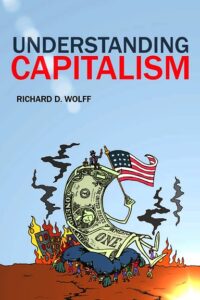
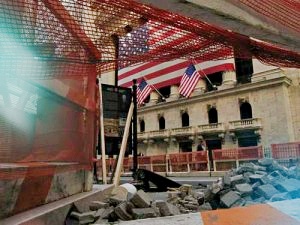
Understanding Capitalism
The great German playwright, and political figure, Berthold Brecht, observed that to understand fascism you have to understand capitalism, from whence it springs. Today, it is also helpful for us to understand that the rise of fascism in Germany 100 years ago, has parallels we can see now with the rise of fascism in the United States.
Prior to World War I, which began in 1914, the German working class and middle class were relatively prosperous. The German unions were strong and influential. Prior to World War I, Germany also had the largest and strongest socialist party in the world, and it was the second largest political party in the German Parliament. The German economy was booming. And German culture was the jewel of Europe.
This all came to a crashing end in 1917, when Germany was defeated in what was an inter-imperial war against the United States, France, Great Britain and Russia. The consequences of that defeat brought us fascism and World War II, 20 years later. In the 1920’s, inflation wiped out the savings of the German people. When the depression hit in 1929, the German working class was desperate. The ground was fertile for the rise of Adolf Hitler, a ruthless, cunning and violent demagogue.
Here in the United States, our economy boomed for 100 years, from the end of the Civil War until the 1970s. But since then, American workers have not made any progress. Their wages, in real terms, have not risen in 50 years! “Neo- liberalism”, which is just another word for aggressive capitalism, has wiped out 30 million industrial jobs in the US, starting in the 1980s. Women were driven back into the workforce. People had to work two jobs just to keep up.
In Germany, it was the Jews who were blamed. Here in the US, it is immigrants and people of color who are scapegoated. The demagogue Trump, like Hitler before him, is a captivating speaker and a very effective cult leader, who is now poised to take the power of the government and turn it against “we the people.”
Guest – Richard Wolff is Professor Emeritus from the University of Massachusetts, and the author of the forthcoming book, “Understanding Capitalism”. According to New York Times, Richard Wolff is, probably America’s most prominent Marxist economist. He is the founder of Democracy at Work and host of their national syndicated show Economic Update. Professor Wolff has authorized numerous books on capitalism and socialism, including most recently “The Sickness is the System: When Capitalism Fails to Save Us From Pandemics or Itself“, “Understanding Socialism“; and “Understanding Marxism”, which can be found at democracyatwork.info.
—-

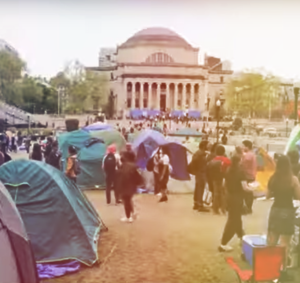
Institute for the Critical Study of Zionism
Instead of the socialist ideal of universal human emancipation, that many European Jews supported, Zionist Israel is the outcome of a very different political ideology…an ideology that a relatively small number of middle and upper class European Jews advanced unsuccessfully until after World War II.
The founders of Zionism promoted it as a Jewish solution to the “Jewish problem.” Communists and socialists rejected this self-segregating reliance on Western colonial powers. And the current increasingly pariah status of Israel and its imperial backer, the United States, has proven the fallacy of the Zionist solution.
Israel is the product of a colonial settler ideology that has its roots in the racist and imperialist practices of the European powers of the 19th century. Theodor Herzl, the founder of Zionism, an Austrian /Hungarian journalist, was a great admirer of Cecil Rhodes, the British imperial figure who founded the mineral settler colony of Rhodesia in what became apartheid South Africa.
From its inception, the goal of the Zionists was to overwhelm and displace the indigenous native Arabs in Palestine. As a result, despite its own self-promotion, Israel is not the moral legatee of the victims of the holocaust, much less of the prophets of the Hebrew people who propounded the 10 Commandments.
The horrific slaughter since last October 7th of the Palestinians in Gaza, has been live streamed for people all over the world to see.
Guest – Emmaia Gelman is a professor at Sarah Lawrence College in New York and the founder of the Institute for the Critical Study of Zionism. Her book on the powerful Zionist organization the Anti-Defamation League is about to be published by the University of California press.

—————————-
CIA Sponsored Terror, Civil Liberties, Civil Rights, Criminalizing Dissent, Extraordinary Rendition, Freedom Of Speech, Human Rights, Iraq War, Prosecution of the Bush Administration, Targeting Muslims, Torture, Violations of U.S. and International Law, War Resister, Whistleblowers
Podcast: Play in new window | Download
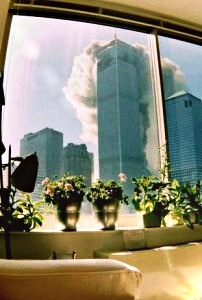

September 11, 2001: Lessons Learned And Overlooked
It has been 23 years ago this week since the attacks on September 11, 2001 in New York City, the Pentagon, and Shanksville, PA, killing nearly 3,000 people and injuring more than 6,000. On that day, the United States had a choice: The George W Bush administration could have treated the attacks as a violation of US and international law, launched a criminal investigation, and brought the perpetrators to justice in accordance with the rule of law. Instead, President Bush waged endless wars against Afghanistan and Iraq, pushed through Congress the USA Patriot Act, opened the notorious detention center at Guantanamo Bay which remain to this day, rounded up Muslims and South Asians for indefinite detention, initiated a wave of civil liberties and human rights violations, and committed wholesale torture against detainees and others.
To assess the legacy of 9/11 and the lessons learned and the lessons overlooked, we’ve invited someone who was at the center of Bush’s War on Terror. John Kiriakou is a journalist, former CIA counterterrorism officer, former senior investigator for the Senate Foreign Relations Committee, and former counterterrorism consultant for ABC News.
In 2007, Kiriakou blew the whistle on the CIA’s torture program, telling ABC News that the CIA tortured prisoners, that torture was official U.S. government policy, and that the policy had been approved by President George W. Bush. He knew what he was talking about. In 2002, he was responsible for the capture in Pakistan of Abu Zubaydah, then believed to be the third-ranking official in al-Qaeda.
He became the sixth whistleblower indicted by the Obama administration under the Espionage Act of 1917 — a law designed to punish spies. He served 23 months in prison as a result of his revelations.
In 2012, the Ralph Nader family honored Kiriakou with the Joe A. Callaway Award for Civic Courage, an award given to individuals who “advance truth and justice despite the personal risk it creates.” He won the PEN Center USA’s prestigious First Amendment Award in 2015, the first Blueprint International Whistleblowing Prize for Bravery and Integrity in the Public Interest in 2016, and also in 2016 the Sam Adams Award for Integrity in Intelligence, given by retired CIA, FBI, and NSA officers.
Guest – John Kiriakou is the author of eight books, including The Reluctant Spy: My Secret Life in the CIA’s War on Terror; and The CIA Insider’s Guide to the Iran Crisis. I met John in 2017 and we collaborated on companion reviews or the Los Angeles Review of Books of the book with the euphemisitic title Enhanced Interrogation written by James E. Mitchell and Bill Harlow, the architects of the American torture system.
—-


COP 29 Held In Azerbaijan Dictatorship
This year the UN Climate Conference — known as COP29 — will be hosted by the petrol-dictatorship of Azerbaijan. As COP29 delegates prepare to attend talks in Baku, the international community has a chance to shine a spotlight on Azerbaijan’s abysmal human rights record, notably the blockade and ethnic cleansing of Nagorno-Karabakh’s (Artsakh’s) Armenian population last year, and amid the government’s escalating domestic crackdown on freedom of speech, assembly and the press.
Ironically, Azerbaijan’s dictator Ilham Aliyev allocated $1 million to the UN Human Settlements Program, one day before a UN mission visited the Artsakh region who reported ‘no irregularities’ despite the territory being depopulated by Azerbaijan’s military invasion.
As one of the world’s top environmental and fossil fuel polluters, during its invasion of Nagorno-Karabakh, Azerbaijan used the outlawed, lethal and environmentally hazardous White Phosphorus as a chemical weapon on the native Armenian population and their highly forested environment. In that fatal siege, which liquidated all native Armenians, the Azeri government-sponsored blockaders posed as climate activists, while punishing true protesters of lethal pollution, in Azerbaijan, especially journalists and activists in advance of COP29.
Guest – Karnig Kerkonian, one of 23 legal advisors representing the Republic of Armenia at the ICJ (International Court of Justice) in 2021. Karnig’s team presented their case against Azerbaijan, calling on the Tribunal to take provisional measures “as a matter of extreme urgency” to “protect and preserve Armenia’s rights and the rights of Armenians from further harm.” Azerbaijan has ignored the ICJ’s November 2023 ruling to “take all necessary measures to prevent and punish acts of vandalism and desecration affecting Armenian cultural heritage, including but not limited to churches and other places of worship, monuments, landmarks, cemeteries and artifacts.” Attorney Kerkonian has also represented the Armenian community of Old Jerusalem in recent Israeli settler incursions upon the Armenian Quarter.

————————
Censorship, Civil Liberties, Civil Rights, Freedom Of Speech, Human Rights
Podcast: Play in new window | Download
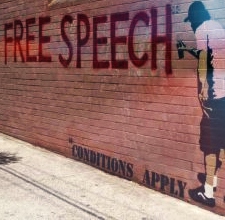
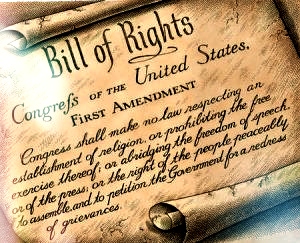
Book Banning, Censorship And Freedom Of Speech
Americans have a love-hate relationship with freedom of speech: They love to protect their own free speech and they hate to protect the free speech of those they disagree with. The First Amendment to the US Constitution was intended to protect freedom of speech and freedom of the press, yet throughout American history, governments at all levels have censored speech and tried to muzzle the press.
The anti-censorship group PEN America, in a survey of the 2022-23 school year, found that “freedom to read is under assault in the United States — particularly in public schools — curtailing students’ freedom to explore words, ideas, and books.” Authors whose books are targeted are most frequently female, people of color, and/or LGBTQ+ individuals.
According to the American Library Association, the number of titles targeted for censorship surged 65 percent in 2023 compared to 2022, reaching the highest levels it has ever documented. According to Deborah Caldwell-Stone, director of ALA’s Office for Intellectual Freedom, “Each demand to ban a book is a demand to deny each person’s constitutionally protected right to choose and read books that raise important issues and lift up the voices of those who are often silenced.”
Guest – Robert Corn-Revere is Chief Counsel for the Foundation for Individual Rights and Expression, known as “FIRE.” He has practiced First Amendment law for 40 years. From 1989 to 1994, Corn-Revere served as legal advisor and later chief counsel to the Chairman of the Federal Communications Commission.
Corn-Revere is a prominent writer, thinker, and advocate on free expression issues and is regularly listed as a leading First Amendment and media lawyer by various national publications. He co-authored the three-volume treatise, “Modern Communication Law.” In 2021, Cambridge University Press published his book, “The Mind of the Censor and the Eye of the Beholder: The First Amendment and the Censor’s Dilemma,” which explores how free expression became a part of America’s identity. I reviewed “The Mind of the Censor” for Los Angeles Review of Books and called it an “entertaining, enlightening, and timely book.”
Another form of censorship – Report: Record Number of Journalists Killed in Gaza by Stephen Rohde
—-
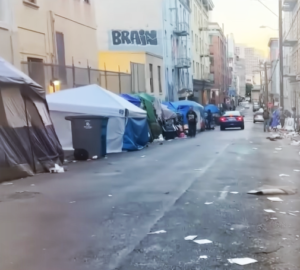
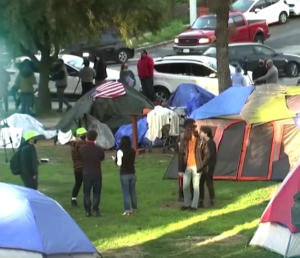
Disappeared: Criminalizing The Unhoused
Late this June, the U.S. Supreme Court ruled that cities can punish people for sleeping in public places. In a 6-3 decision along ideological lines, the Court overturned lower court rulings that held it is cruel and unusual punishment under the Eighth Amendment to penalize people for sleeping outside if they had nowhere else to go. This ruling now allows localities the right to dismantle encampments of tents and cardboard coverings, even when there is no locally available housing or shelter.
Human Rights Watch has condemned this ruling and released a comprehensive report titled, You Have to Move! The Cruel and Ineffective Criminalization of Unhoused People in Los Angeles. The report documents the experiences of persons living on the streets, in vehicles, in temporary shelters, and in parks as they struggle to survive. In Los Angeles alone, tens-of-thousands of people are living in the streets, with death rates among the unhoused population reaching alarming levels. Governor Gavin Newsom, a supporter of the Court’s decision, has urged all local jurisdictions in California to destroy unhoused encampments. Several cities in the state have already begun doing so.
Western Regional Advocacy Project
The lack of housing is a national crisis, and this ruling raises the risk of increased use of such punitive tactics not only in Los Angeles but across the entire country.
Guest – John Raphling, Senior Researcher in the U.S. Program of Human Rights Watch and author of the report we’ve mentioned. Before joining Human Rights Watch, John spent years as a Deputy Public Defender in Los Angeles. He has represented political and community activists targeted for their activism, and homeless people prosecuted for crimes related to their status. John is also a member of the National Lawyers Guild.

———————————–
Civil Liberties, Civil Rights, Gaza, genocide, Human Rights, Targeting Muslims, U.S. Militarism, Violations of U.S. and International Law, War Resister
Podcast: Play in new window | Download
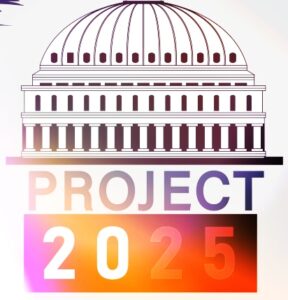
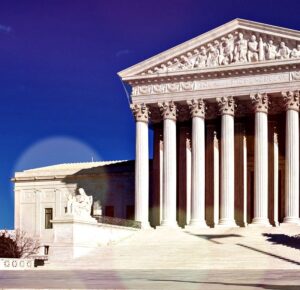
Separation of Powers And Project 2025
The US Constitution created the three branches of the federal government to serve as a check on one another. In particular, the judiciary was intended to ensure that the actions of the Executive and Legislative branches did not violate the Constitution.
But what happens when the Supreme Court is in the grip of a highly partisan, result-oriented super-majority half of whom were appointed by a President who has been convicted of 34 felonies and faces 57 more felony charges in three different criminal prosecutions, but claims absolute immunity for whatever he did while in office?
And on top of all that, this ex-President – Donald Trump – is a nominee for President of the United States and has promised to “terminate” the Constitution.
Meanwhile, in an almost 1000 page blueprint for the next conservative President titled Project 2025, a group of conservative organizations spearheaded by the Heritage Foundation, has laid out a detailed plan under which the President would acquire almost dictatorial power over the entire federal government.
Guest – Marjorie Cohn is professor of law emerita at Thomas Jefferson School of Law and former president of the National Lawyers Guild. She is also Dean of the People’s Academy of International Law and a member of the Bureau of the International Association of Democratic Lawyers. She writes frequent articles about the Supreme Court for Truthout.
—-


Larry Hebert’s Hunger Strike Against US Weapons To Israel
Israel’s deadly and unrelenting assault on Gaza following Hamas’ October 7 attack on Israel has had repercussions around the world. In Gaza itself the death toll is approaching 40,000 and the humanitarian crisis worsens every day. In the United States, as students are headed back to campus, colleges and universities are bracing for a new round of protests and counter protests. Israel’s war in Gaza is dividing the Democratic Party just as Kamala Harris and Tim Walz are seeking to unite their party to stop Donald Trump from returning to the White House. Recent surveys show that 48% of Americans oppose Israel’s military action in Gaza, while 42% support it.
Guest – Larry Hebert [pronounced eh-BEAR], a very unlikely candidate to become an outspoken protestor against US military support for Israel, who would gain nationwide and international attention. Larry Hebert is a 26-year old U.S. Air Force Senior Airman and avionics technician assigned to Naval Station Rota in Spain, having served for 6 years in the military. At 10:00 am on Easter Sunday, March 31, 2024 on Pennsylvania Avenue in front of the White House, Hebert began a hunger strike during an authorized leave from his post. Shortly before his hunger strike, he joined Veterans for Peace, an organization that opposes U.S. military actions.
The organization argues that U.S. weapons shipments to Israel is a violation of U.S. law. In a press release issued by Veterans for Peace, the purpose of Hebert’s hunger strike was described as highlighting “the plight of the starving children of Gaza.” Hebert wore a sign that read, “Active duty airman refuses to eat while Gaza starves,” with a photograph of an emaciated Palestinian infant. Hebert said he was inspired by the self-immolation of 25-year old serviceman Aaron Bushnell, who died on February 25, 2024 outside the Israeli embassy in Washington. Before he died, Bushnell declared he would “no longer be complicit in genocide” in Gaza. Hebert’s hunger strike lasted 9 days but ended abruptly on April 9, when he was ordered to report immediately to Andrews Air Force Base for a return flight to his post in Spain. Hebert is pursuing a release from active duty as a Conscientious Objector.

———————–
Civil Rights, Gaza, genocide, Human Rights, Targeting Muslims, U.S. Militarism, Violations of U.S. and International Law, War Resister
Podcast: Play in new window | Download

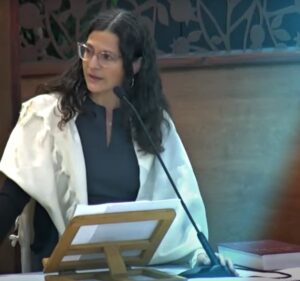
Healing Divisions Within Jewish Communities Over Israeli War And Destruction
Ever since October 7, the American Jewish community has been deeply divided over how to react to the brutality of what Hamas did that day, the fate of the hostages, Israel’s overwhelming military assault in Gaza, the ensuing humanitarian crisis, the unspeakable death toll suffered by the Palestinians, and the deadly clashes in the West Bank. All of this has spilled over to college campuses across the United States, where pro-Palestinian protestors, including Jews, have been arrested and at UCLA, were attacked by pro-Israel counterprotesters. Many Jews, including family members, can’t talk to each other about any of this. Some observers see a rise in antisemitism, while others complain that political criticism of Israel and its prime minister Benjamin Netanyahu is being conflated with antisemitism, in an effort to silence pro-Palestinian voices.
Guest – Rabbi Sharon Brous is the founding and senior rabbi of IKAR, a leading edge Jewish community based in Los Angeles. She has been named #1 Most Influential Rabbi in the U.S. by Newsweek and The Daily Beast. Rabbi Brous blessed both President Obama and President Biden at their National Inaugural Prayer Services in 2013 and 2021. Her popular 2016 TED Talk is called “Reclaiming Religion.” Her work has been featured in the New York Times, Los Angeles Times and Washington Post. She was featured on the cover of Time magazine, in an issue that examined religious diversity in America.
Rabbi Brous is the author of the national bestselling book The Amen Effect: Ancient Wisdom to Mend our Broken Hearts and World, which we’ll be talking about later in the program. I have know Sharon for almost two decades and I consider her one of the most compassionate people I know with wisdom far beyond her young life.
—-
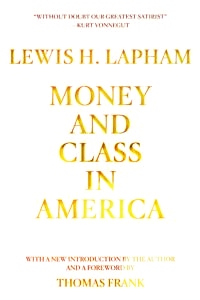
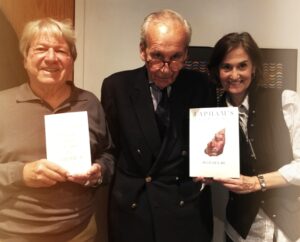
Money And Class In America – Remembering Lewis Lapham
On July 23, 2024, Lewis Henry Lapham II passed away in Rome, Italy. A nationally respected journalist and author, of 14 books, Mr. Lapham was also the longtime editor in chief of Harper’s, and then founder and editor of Lapham’s Quarterly, Mr. Lapham offered a critical eye toward US domestic and foreign policies. On January 14, 2019, Michael Smith and I, Heidi Boghosian, interviewed the literary giant after his 1988 book, “Money and Class in America” was republished by OR books. His documentary film, “The American Ruling Class” has become part of the curricula in many of the nation’s schools and colleges. In tribute to Lewis Lapham and his legacy, we’re pleased to rebroadcast a shortened version of our one-hour interview.
—-
We are especially pleased and honored to spend the hour with our guest Lewis Lapham. After graduating from Yale in 1956 he started out working as a newspaper reporter in San Francisco and then in New York, where he currently lives and works. The editor of Harper’s Magazine for 20 years, Lapham has written 14 books. Currently, he edits “Lapham’s Quarterly.”
Lapham founded the quarterly magazine in an effort to further the consideration of history, which he calls “the advice and counsel of the past.” He sees history as “a guide to understanding and acting on the issues and ideas before us today.”
Major pillars of the rule of law have been defiled since 911. The edifice still stands, the promises remain, but as a nation, we have suffered huge losses. Last spring Lapham’s Quarterly addressed the topic, “The Rule of Law.” His 1988 book “Money and Class In America” was re-published by OR Books last year with a new introduction by Lapham and a forward by Thomas Frank. We speak with him in our studio today about the contradiction between the rule of the monied rich and the rule of law.
Guest – Lewis Lapham is editor and founder of Lapham’s Quarterlysince 2007 and editor of Harper’s Magazinefrom 1975 to 2006, Lewis H. Lapham is a member of the American Society of Magazine Editors Hall of Fame. He is the author of fourteen books, among them Money and Class in America, The Wish for Kings,Waiting for the Barbarians, Theater of War, and Age of Folly. He produced a weekly podcast,The World in Time, for Bloomberg News from 2011 through 2013. His documentary filmThe American Ruling Class has become part of the curriculum in many of the nation’s schools and colleges. A member of the Council on Foreign Relations in New York, Lapham has lectured at Yale, Princeton, Dartmouth, Stanford, the University of Michigan, and the University of Minnesota.

——————-
Civil Rights, Death Penalty, Human Rights, Prison Industry
Podcast: Play in new window | Download
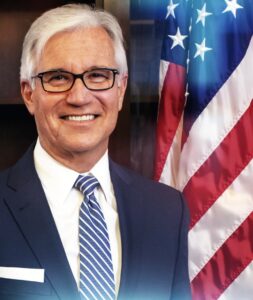
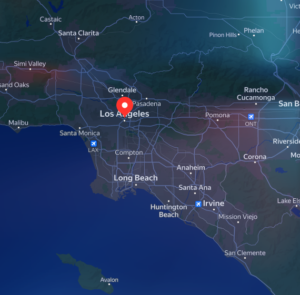
The California Criminal Legal System Reconsideration
In recent years, District Attorneys around the country in Los Angeles, Philadelphia, San Francisco, and elsewhere have broken the law and order mold as they look for better ways to address public safety, crime, prosecution, and sentencing in America, including a wholesale reconsideration of the death penalty.
To examine the criminal legal system in the United States, we’ve invited one of the leading progressive prosecutors in America, George Gascon, the District Attorney of Los Angeles County, to join us.
Guest – Attorney George Gascon began his career in law enforcement at the Los Angeles Police Department where he worked his way up the ranks from patrol officer to Assistant Chief of Police, overseeing operations for the more than 9,000 LAPD officers Then, in 2006, he was tapped to be Chief of Police in Mesa, Arizona, where he stood up to the hateful and anti-immigrant policies of then-Maricopa County Sheriff Joe Arpaio. In 2009, then-Mayor Gavin Newsom appointed Gascón to be San Francisco’s Chief of Police. Two years later, Newsom again turned to Gascón to fill a vacancy created when then-District Attorney Kamala Harris was elected California Attorney General. Gascón was re-elected San Francisco District Attorney twice.
He was the first Latino to hold that office, and the nation’s first Police Chief to become District Attorney. On December 7, 2020, he took office as the DA of LA County. He is also a former board member of the Council of State Governments Justice Center, a graduate of the FBI’s National Executive Institute and a former member of the Harvard University Kennedy School of Government’s Executive Session on Policing and Public Safety.
—-
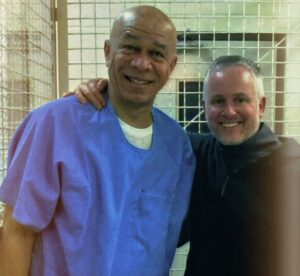

Maintaining Innocence Under Threat Of Execution: Bill Clark
We may be witnessing the dying days of the death penalty in the United States. 23 states have ended the use of capital punishment, while it remains on the books in 27 states, yet the number of executions are in decline. The U.S. public sector and political leaders are beginning to understand what abolitionists have always known: The death penalty is a relic of our racist past yet discrimination on the basis of race continues to plague the system. 55.8 percent of those executed are white, but 33.9 percent are Black and 8.4 percent are Latino/a, which is gruesomely out of proportion to the national population. Currently, 42 percent of death row inmates are white but a shameful 41 percent are Black.
Today, on Law and Disorder we are focusing on the state of California, where there are 650 inmates on death row, the largest number in the Western Hemisphere. 13 men have been executed since 1978. The last execution was in 2006. Due to a combination of court rulings and a moratorium imposed by Gov Gavin Newsom in 2019, there have been no executions in California in the last 18 years. Five inmates have been officially found innocent, all of whom were people of color. They join the 200 exonorees nationwide. Despite the moratorium in California, 17 people have still been sentenced to death in California — 80% of whom are Black or Latino.
The California Supreme Court is currently deciding whether to take up a historic petition filed in April by a coalition of civil rights and justice organizations arguing that racial discrimination in the administration of the death penalty in California violates the equal protection guarantee of the state constitution. The petition to the state Supreme Court cites more than a dozen studies showing race discrimination. One looked at more than 55,000 homicide cases in California between 1979 and 2018 and found that Black individuals were more than twice as likely to receive a death sentence as white individuals, while Hispanic individuals were 1.5 times more likely to receive a death sentence. California Attorney General Rob Bonta agreed in his response to the petition that the evidence of racial discrimination in capital punishment is “profoundly disturbing.”
So those are some of the facts which describe the capital punishment system in California and the Nation. But today on Law and Disorder we want to go beyond those raw statistics and take a look at the human cost of the death penalty by talking to someone who has been living under the threat of execution for 33 years. Bill Clark’s Film Project
Guest – Bill Clark joins us by phone from prison in Vacaville, California, where he has been housed since March of this year after his transfer from San Quentin, where he was incarcerated for 26 years. I have known Bill for 24 years. Despite his situation, he is a hopeful, resilient and creative person. He was convicted of two murders in the early 1990s and has steadfastly maintained his innocence as he continues to challenge his convictions and death sentences.

————————————
























